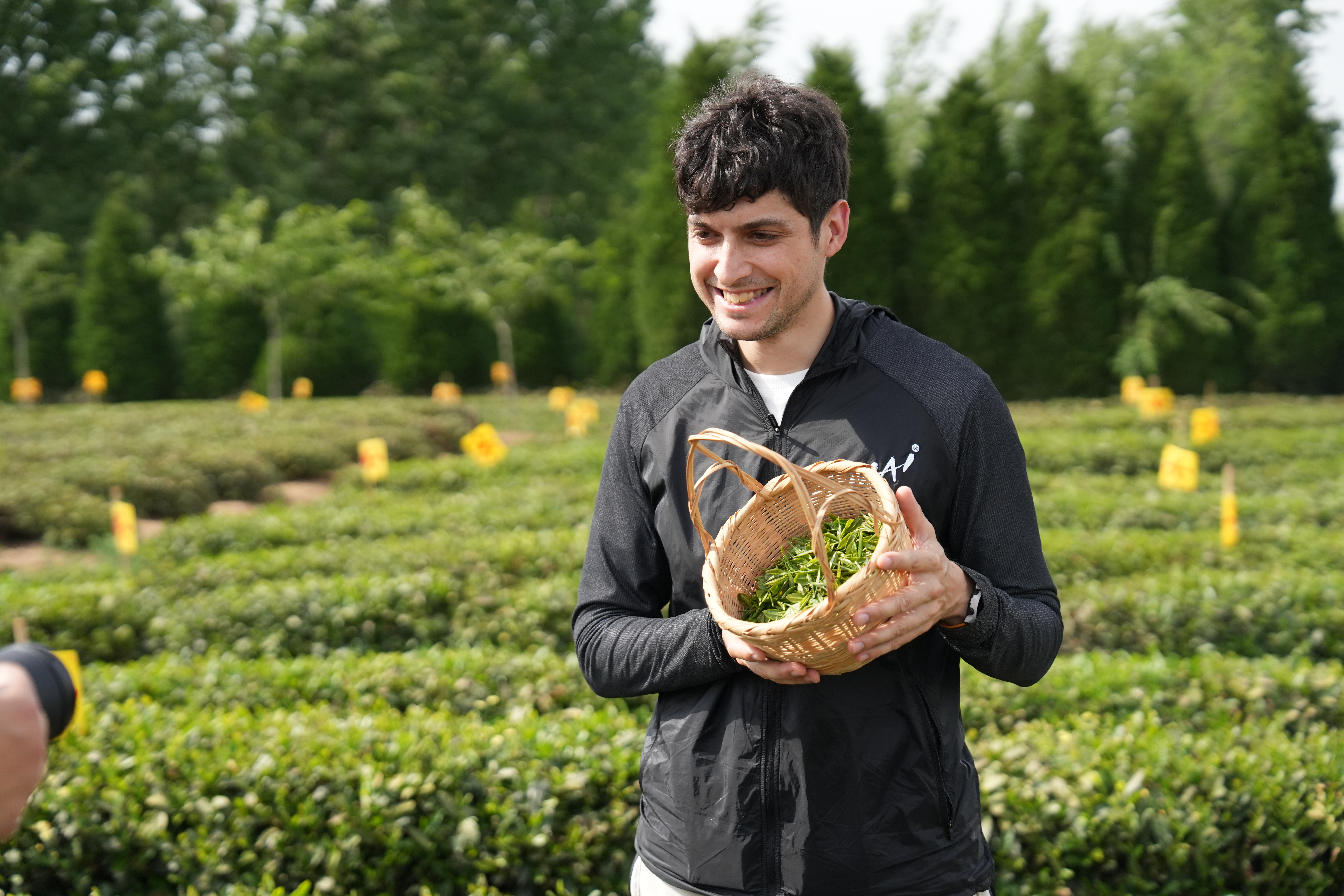Football, 'diya' for Pakistani girls
QINGDAO -- For many, football is just a game. But for Rukhsar Rashid, it is about life, her dreams, and national pride.
"If there were no football, I would get married, and take care of housework, children and have a husband like many other Pakistan women are doing," said Rukhsar Rashid, conductor of the Diya Women Football Club (DWFC) of Pakistan, who is leading the club's U12 team at the ongoing Gothia Cup China in Qingdao.
DWFC is the first female football club in Pakistan, which was founded by Sadia Sheikh, a PE teacher, in 2002.
"Diya means lamp in Urdum. It is a symbol of light and thereby hope," said Rukhsar. "Sadia, the club's founder, wants to bring more light into Pakistani girls' lives."
Becuase she is studying in America, Sadia can't come to Qingdao with the team.
Sadia, born in Pakistan, loved football a lot while growing up in Sharjah. Coming back to Pakistan with her parents during college, Sadia found there were no female sports in Pakistan.
Sadia told her father that she wanted to play football and start a female football team, but her father declined.
"In Pakistan, girls don't always go outside. They are supposed to get married and take care of housework, children and their husbands," Rukhsar said. "It would be a crazy idea for Pakistani parents to let their daughters play football."
After years of fighting, Sadia established the first female football team in Pakistan. The team had only five girls initially, and Sadia collected more girls here and there.
"If Sadia meets talented girls and they want to have a trial, she would go to their homes and persuade their parents one by one," Rukhsar said.
Rukhsar, who liked jumping, running and climbing in her childhood, met Sadia in the Sindh football trials in 2010. "Sadia saw that I could work hard and told me to join her club. I was so excited, although I didn't know anything about football at that time," she said.
Rukhsar's excitement suddenly disappeared as her father declined her request again, and her brother and brother-in-law laughed at her.
So Sadia went to Rukhsar's home and talked with her father. She promised to provide transportation fees, uniform, and shoes. Her father agreed.
Rukhsar's father did not regret his decision. She has become a coach of the club and also a sports teacher in private schools.
"DWFC has trained many girls like me. We get new lives, thanks to football and Sadia," she said.
"After football training in the club, we are courageous, not only on the field but also in life," she added.
DWFC has more than 80 girls now, but the finances are usually a tricky matter, as the club must pay for the girls' study, transportation fee, shoes, uniforms, and other incidentals to prevent them from leaving.
While working as a PE teacher, Sadia also works as a football coach in private schools in the evening and gets a government job, just to keep the money rolling to organize football events for her club.
"Everyone in the club is deeply touched by Sadia's hard work, and we have no reason not to work as hard as we can," Rukhsar said.
Girls have two hours' training every day from 4 to 6 p.m. on a mud pitch, as they don't have enough money to build a lawn field. "But everyone trains hard and is very happy about football," Rukhsar said. "When girls are playing football, they can throw all stresses and restrictions away."
With the development of DWFC, a few Pakistani parents have changed their minds about women's football and have begun to send their daughters to football clubs.
"We have made some big achievements in international games, like reaching the quarterfinals in the Norway Cup last year, and we dream to make the country proud of us," said Rukhsar.









 Play
Play  Play
Play